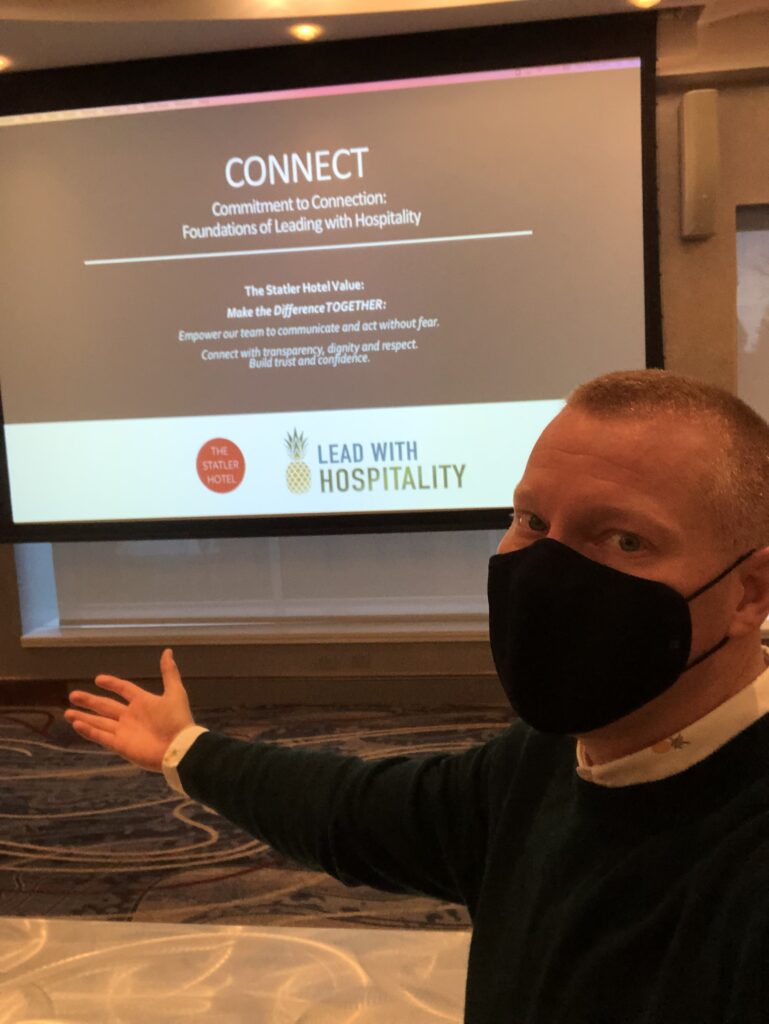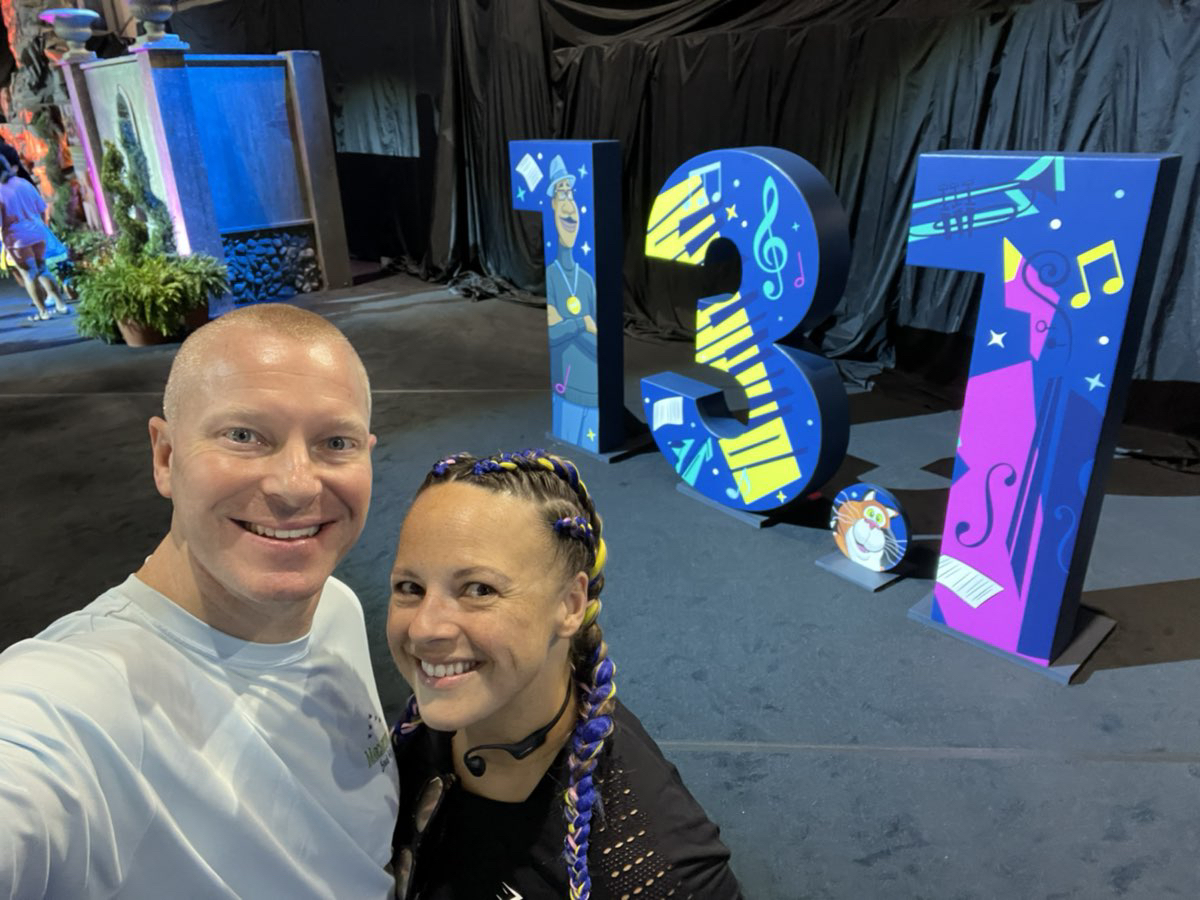13.1 Transferable Lessons Learned While Training for a Half Marathon
- Slow down to speed up
We think we have to sprint, all-out, at work and even in life. Sometimes, actually more often than not, when and if we’re able to bring ourselves to slow down, we find we end up going further, quicker.
- Together we go far
Whether it’s training for an endurance race or living through the real-life race that is our personal and professional lives, going at it alone will only get you so far. However, as our friends at Peloton (@onepeloton) remind us daily, together we go far. Life, work, a race … building community every chance you get will often be the difference that matters.
- It’s okay to not be okay
Some days, some weeks, and even some months we just “don’t feel it”. That doesn’t make us weird. It makes us human. Reminding ourselves that “it’s okay to not be okay” can often be the dollop of positive self-talk that reminds us that we don’t have to stay that way. 99 times out of 100, mindset is everything.
- How you do anything is how you do everything
Getting comfortable being uncomfortable is an amazing thing. In the moment it’s not only a test of our character, but it’s also how we slowly but surely continue improving; one small step at a time. Life doesn’t get any easier. We get stronger; every single time we get comfortable getting uncomfortable.
- Run your race
Better than yesterday. The only person worthy of competing against is the person we were yesterday. Others are running their race, on their own path, experiencing their own journey, their way. Rather than focusing on how well we measure up to “them”, it’s far more productive and purposeful to focus on things we can control. Our mindset, our effort, our contribution, and the love we give to ourselves and others.
- Rest and recovery – it’s a thing
When we feel powerless, it’s usually because we’re energy-less. There’s power in recovery when we can hold ourselves accountable to build in ample time and space for rest – mentally, physically, emotionally, and spiritually. Amazing ideas and the most inspiring thoughts find us in those precious moments of rest.
7. We can do hard things
Hard things, by definition, are never easy. As Peloton’s Jess Sims reminds us often, “…never easy, but always worth it.” In the rough moments, when adversity sets in, remind yourself of what you’ve already accomplished. We’ve made it through hard things before, and we can make it through them again. And when we do, it’s always worth it on the other side of the pain.
- Visualization matters. Practice the future today.
Even if it seems outlandish, far-fetched, and impossible, dare to envision what it would be like, what it would feel like, who might be with you, the impact you’ll make, and even the joy you’ll experience along the way. Every significant thing ever accomplished, built, created, or shared started with a vision. Why not you? Why not me?
- Yes, you can. Believe you belong
“Can’t never did anything.” It’s a phrase many of us heard from our parents, teachers, and coaches when we were young. They were right then, and they’re right today. Inevitably we all have moments when we think, “I can’t.” When you hear that voice, politely tell it, “Yes I can.” And then tell somebody next to you, “Yes you can.” That helps us get out of our own way.
- Ask for help when you need it
“Together we’ve got this. Alone, it’s got us.” I love that quote, but I’m not sure who coined the phrase. I just tend to agree. We’re all social beings who simply need connection to survive, let alone getting through the hard times in life – at work or at home. Ask for help when you need it. You’ll go further, quicker, and it’s usually more fun experiencing things with one another.
- Goals are important but planning is critical
Yogi Berra once said, “If ya don’t know where you’re going, you’ll end up someplace else.” Goals certainly keep us and anyone working with us headed in a positive and productive direction. However, a goal without a plan is just a wish. Having a game plan turns activity into productivity as you get closer and closer to your goal.
- Trust the process
Whether it’s building up enough stamina or capability to run/walk a Half-Marathon or building up enough knowledge to conquer that “thing” on your list, usually there’s a process involved. More often than not, that process will take time. Trust it.
- Enjoy the journey
If we don’t enjoy it, then why endure the pain and anguish of getting comfortable getting uncomfortable? Just like on those long runs in the sun, in the midst of a rough season, or even during the more magical seasons, the “good stuff” is usually found in the little moments of appreciation and gratitude. The hard part is reminding ourselves when those moments are happening. They’re usually closer than you think, and it’s usually right now. Enjoy the now. It’s about the journey, not the destination.
.1 – Encourage others along the path
Everyone is likely fighting a tough battle – physically, mentally, emotionally, or spiritually – we may know nothing about. So, be an encourager. The world has enough negativity and drama. You and I can be the light in a dark season, for ourselves and for others. And it doesn’t cost a penny, yet it just may mean the world.

Need support in getting your entire team onboard with creating a connected culture? Learn about the Lead with Hospitality Commitment to Connection Learning Experience here or check out all the ways you can work with my team and I here.
In Commitment to Connection, your leadership team will learn:
- The psychology of motivating people.
- How to engage in effective one-on-one meetings to connect with teams on a personal, human level.
- How to prepare for and facilitate productive team meetings that bring members closer together; building trust and a sense of purpose within the team’s culture.
- How to use ongoing meaningful written communication to convey team goals whether employees are in the office or working from home.






